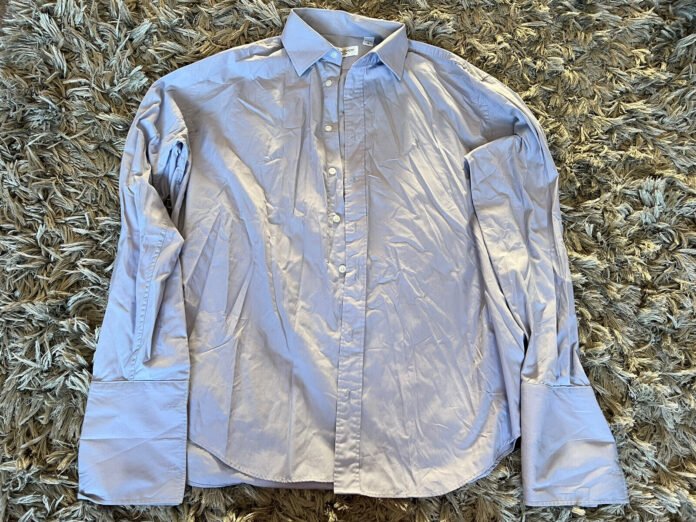The Indian research body has urged its staff to wear wrinkled clothes to work, sparking curiosity and intrigue among employees and observers alike. Vishal Kumar, Chief Executive Officer of the Waste Warriors Society, sheds light on the rationale behind this unconventional directive, stating, “Ironing clothes contributes to carbon dioxide emissions primarily due to the electricity used by the iron.”
The move comes as part of a broader effort to promote sustainability and reduce carbon footprint within the organization. By encouraging employees to embrace wrinkled attire, the research body aims to minimize energy consumption associated with ironing clothes, thereby mitigating its environmental impact.
According to Kumar, the electricity used by irons contributes to carbon dioxide emissions, making it a significant factor in environmental degradation. By adopting a wrinkled clothing policy, the research body seeks to align its practices with principles of environmental conservation and sustainability.
The decision to implement such a policy reflects a growing awareness of the environmental consequences of everyday activities. Ironing clothes, once considered a mundane chore, is now being scrutinized for its environmental implications, prompting organizations to explore alternative approaches to garment care.
While the idea of wearing wrinkled clothes to work may seem unconventional, it underscores the importance of individual actions in mitigating climate change. By making small changes to their daily routines, such as embracing wrinkled attire, employees can contribute to larger efforts aimed at reducing carbon emissions and preserving the planet for future generations.
The initiative has garnered mixed reactions from employees, with some expressing enthusiasm for the opportunity to reduce their environmental footprint, while others voice concerns about the perceived unprofessionalism of wearing wrinkled clothes to work.
However, proponents of the policy argue that the benefits of reducing carbon emissions outweigh any potential drawbacks. By adopting a wrinkled clothing policy, the research body demonstrates its commitment to environmental stewardship and sets an example for other organizations to follow.
The decision to implement a wrinkled clothing policy reflects a broader shift towards sustainable practices within the workplace. As organizations increasingly recognize the environmental impact of their operations, they are seeking innovative ways to reduce their carbon footprint and promote eco-friendly behaviors among employees.
In recent years, there has been a growing emphasis on sustainability in the corporate world, with companies adopting various initiatives to minimize their environmental impact. From implementing recycling programs to reducing energy consumption, businesses are exploring a range of strategies to operate more responsibly and mitigate their contribution to climate change.
One area that has received increased attention is the environmental impact of clothing production and care. The fashion industry is notorious for its high levels of resource consumption and pollution, from water usage in textile manufacturing to carbon emissions from transportation and distribution. By encouraging employees to wear wrinkled clothes, the research body is addressing a small but significant aspect of this larger issue.
The wrinkled clothing policy is also emblematic of a broader cultural shift towards embracing imperfection and authenticity. In a society that often values perfection and appearances, the idea of deliberately wearing wrinkled clothes challenges conventional norms and encourages individuals to embrace their natural state. By rejecting the pressure to conform to unrealistic standards of beauty and professionalism, employees are empowered to express themselves more authentically and confidently.
Moreover, the wrinkled clothing policy has the potential to foster a sense of camaraderie and solidarity among employees. By participating in a shared experience, employees may feel a greater sense of connection and community within the workplace. This sense of unity can strengthen team dynamics and enhance overall morale, contributing to a more positive and inclusive work environment.
While the wrinkled clothing policy may initially seem like a minor change, its potential impact extends far beyond the realm of fashion. By raising awareness about the environmental consequences of everyday actions, such as ironing clothes, the research body is sparking conversations about sustainability and inspiring individuals to rethink their habits and behaviors.
In addition to reducing carbon emissions, the wrinkled clothing policy may also have financial benefits for employees. By eliminating the need to purchase and maintain an iron, employees can save money on energy bills and clothing maintenance costs. This cost-saving measure can be particularly beneficial for those on a tight budget or living in areas with high energy prices.
The wrinkled clothing policy serves as a reminder that sustainability is not just a trend or a buzzword—it is a fundamental principle that should guide our actions and decisions in all aspects of life. By making small changes to our daily routines, such as wearing wrinkled clothes to work, we can collectively make a positive impact on the environment and create a more sustainable future for generations to come.

